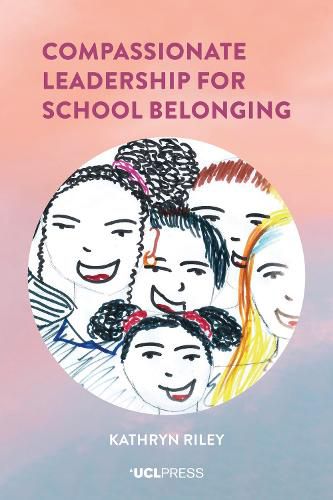Readings Newsletter
Become a Readings Member to make your shopping experience even easier.
Sign in or sign up for free!
You’re not far away from qualifying for FREE standard shipping within Australia
You’ve qualified for FREE standard shipping within Australia
The cart is loading…






A highly readable book offering a message of hope for education in an uncertain world. Compassionate Leadership for School Belonging draws on forty years of international research and professional practice to show how schools can be places of safety and fulfillment, even in the most difficult of circumstances. When belonging is a school’s guiding principle, more young people experience a sense of connectedness and friendship, perform better academically, and come to believe in themselves; their teachers feel more professionally fulfilled, their families more accepted. The originality of this highly readable book lies in its scope. It offers international analysis from the OECD alongside insights from the author’s extensive research in schools, powerfully supported by observational vignettes and drawings from the children, young people, and teachers who have been her co-researchers. The book reveals patterns of dislocation, disaffection, and exclusion, and highlights the points of intervention in policy and practice needed across school systems to create the conditions for school belonging. The methodologies, concepts, and research tools offered can be used by practitioners and researchers in their own contexts and to guide school leaders towards creating their own places of belonging.
$9.00 standard shipping within Australia
FREE standard shipping within Australia for orders over $100.00
Express & International shipping calculated at checkout
A highly readable book offering a message of hope for education in an uncertain world. Compassionate Leadership for School Belonging draws on forty years of international research and professional practice to show how schools can be places of safety and fulfillment, even in the most difficult of circumstances. When belonging is a school’s guiding principle, more young people experience a sense of connectedness and friendship, perform better academically, and come to believe in themselves; their teachers feel more professionally fulfilled, their families more accepted. The originality of this highly readable book lies in its scope. It offers international analysis from the OECD alongside insights from the author’s extensive research in schools, powerfully supported by observational vignettes and drawings from the children, young people, and teachers who have been her co-researchers. The book reveals patterns of dislocation, disaffection, and exclusion, and highlights the points of intervention in policy and practice needed across school systems to create the conditions for school belonging. The methodologies, concepts, and research tools offered can be used by practitioners and researchers in their own contexts and to guide school leaders towards creating their own places of belonging.